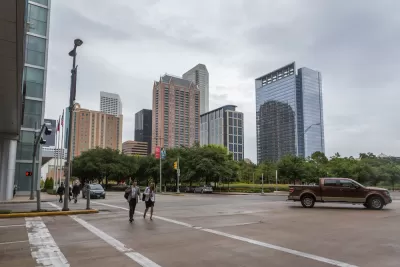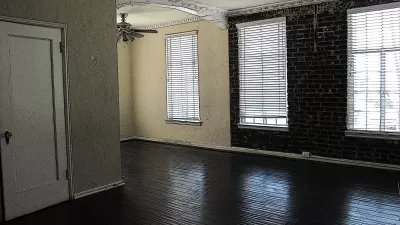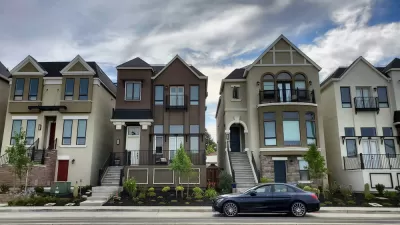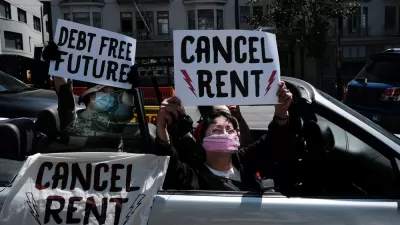More Houston households face evictions as landlords seek to recover back rent accrued during the last two years of the pandemic.

As the funding available for rent relief dries up, more Houston households face eviction and claims for back rent. "In the first week of 2022, the median rent owed was $2,455.70 — the greatest amount since at least 2017 — according to new eviction data from Princeton University's Eviction Lab." Kirkland An reports that as one of the regions that managed to distribute rental assistance faster than many others, Houston and Harris County are down to the last $4 million of their $283 million in rent relief funds, and officials are prioritizing tenants already in eviction proceedings—meaning there's little protection for households teetering on the edge of losing their home.
According to An, "landlords in Harris County are not required to accept rent relief, and can choose to evict their tenants instead." This is leading to crowded courtrooms as eviction courts work through the backlog of eviction filings, which usually peak after the winter holidays.
According to RealPage, a real estate data analytics firm, rents in professionally managed apartment buildings went up by 10.3 percent in the third quarter of 2021. With the end of federal relief funds and eviction moratoriums and rents continuing to rise around the country even as the COVID-19 pandemic continues to disrupt daily life and threaten livelihoods, experts expect a wave of evictions. Housing advocates warn that low-income renters will have an increasingly difficult time renting affordable housing near jobs and essential amenities.
FULL STORY: Why Houston-area landlords are kicking tenants out and asking for more back rent

Study: Maui’s Plan to Convert Vacation Rentals to Long-Term Housing Could Cause Nearly $1 Billion Economic Loss
The plan would reduce visitor accommodation by 25,% resulting in 1,900 jobs lost.

North Texas Transit Leaders Tout Benefits of TOD for Growing Region
At a summit focused on transit-oriented development, policymakers discussed how North Texas’ expanded light rail system can serve as a tool for economic growth.

Why Should We Subsidize Public Transportation?
Many public transit agencies face financial stress due to rising costs, declining fare revenue, and declining subsidies. Transit advocates must provide a strong business case for increasing public transit funding.

How to Make US Trains Faster
Changes to boarding platforms and a switch to electric trains could improve U.S. passenger rail service without the added cost of high-speed rail.

Columbia’s Revitalized ‘Loop’ Is a Hub for Local Entrepreneurs
A focus on small businesses is helping a commercial corridor in Columbia, Missouri thrive.

Invasive Insect Threatens Minnesota’s Ash Forests
The Emerald Ash Borer is a rapidly spreading invasive pest threatening Minnesota’s ash trees, and homeowners are encouraged to plant diverse replacement species, avoid moving ash firewood, and monitor for signs of infestation.
Urban Design for Planners 1: Software Tools
This six-course series explores essential urban design concepts using open source software and equips planners with the tools they need to participate fully in the urban design process.
Planning for Universal Design
Learn the tools for implementing Universal Design in planning regulations.
Ascent Environmental
Borough of Carlisle
Institute for Housing and Urban Development Studies (IHS)
City of Grandview
Harvard GSD Executive Education
Toledo-Lucas County Plan Commissions
Salt Lake City
NYU Wagner Graduate School of Public Service





























